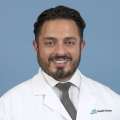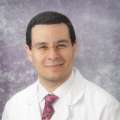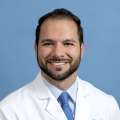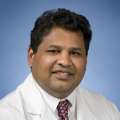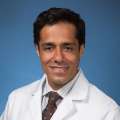Stomach Cancer
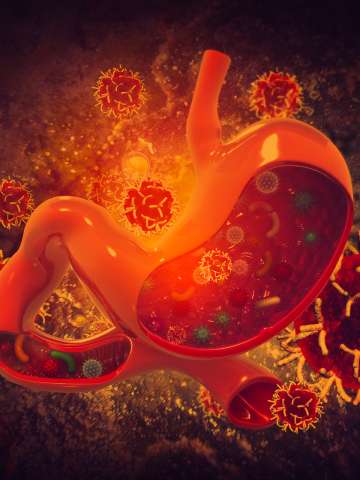
Why choose UCLA Health for treatment for stomach cancer?
We provide gastric cancer treatments through the Gastrointestinal Oncology Program, part of the UCLA Health Jonsson Comprehensive Cancer Center (JCCC). The JCCC is one of the world's leaders in successful gastrointestinal cancer drug development.
We approach each diagnosis and treatment plan with compassion and personalized attention. At UCLA Health, you will find:
Access to innovative research: As global leaders in gastrointestinal (GI) cancer research, we provide eligible stomach cancer patients access to advanced clinical trials for promising new therapies.
Convenient community care: With numerous community clinics, we deliver stomach cancer treatments in neighborhoods throughout the Los Angeles metro area.
Nationally recognized expertise: U.S. News & World Report ranks UCLA Health among the top five hospitals in the country for gastroenterology and stomach cancer surgery.
Proven success: Survival rates after diagnosis and treatment at UCLA Health's Gastrointestinal Oncology Program are among the highest in the nation.
Our services
UCLA Health's Gastrointestinal Oncology Program offers comprehensive services, including:
Diagnosis
Our cancer care team uses the latest diagnostic tools to identify and stage all types of GI cancer. We specialize in delivering a precise diagnosis using advanced procedures, including:
Barium X-ray: Your doctor gives you liquid barium to drink and then takes an X-ray. The liquid barium solution helps produce clear images of any abnormal stomach tissues.
Endoscopic ultrasound (EUS): This procedure uses sound waves to take pictures of the gastrointestinal tract and stomach. The doctor places an endoscope (small lighted tube) with an ultrasound tip through your throat and into your stomach to capture images. The surgeon can also collect tissue samples with a needle biopsy, using a hollow needle to remove tissue. Your doctor sends the tissue sample to a lab to test for cancerous cells.
Cancer genetics
Certain conditions, such as familial adenomatous polyposis (FAP), may increase your risk for developing different types of cancer, including stomach cancer. UCLA Health's Gastrointestinal Oncology Program offers genetic counseling to evaluate your risk factors for some types of cancer. Learn more about our cancer genetics program.
Cancer support
At the , compassionate team members offer holistic support to you and your loved ones. You'll find a diverse range of integrative services and programs to guide you through your cancer journey, including:
- Counseling and support groups for patients and family members
- Nutritional consultations
- Stress management workshops, mindfulness techniques and meditation classes
Types of stomach cancers we treat
Specialists at the UCLA Gastrointestinal Oncology Program treat all types of stomach cancers, including:
Adenocarcinoma: The most common type of stomach cancer, adenocarcinoma begins in the stomach lining. About 95% of stomach cancers are adenocarcinoma tumors.
Gastrointestinal carcinoid tumor: This uncommon type of tumor develops in the neuroendocrine cells of the stomach.
Gastrointestinal stromal tumors (GIST): A rare form of cancer, most GISTs start in the interstitial cells of the stomach wall or in the small intestine. Interstitial cells help muscles in your GI tract move food and liquid through your body.
Primary gastric lymphoma: This rare blood cancer begins in immune system cells in the stomach. Primary gastric lymphoma usually affects older people.
Stomach cancer treatments we offer
At UCLA Health, our gastroenterology specialists offer the most advanced gastric cancer treatments:
Nonsurgical stomach cancer treatments
Your doctor might recommend nonsurgical treatment for stomach cancer to shrink a tumor before surgery, or if the cancer has spread. We offer:
Chemotherapy: These powerful drugs kill cancer cells throughout the body. Your doctor may also use chemotherapy to shrink tumors prior to surgery.
Radiation therapy: This treatment uses high-energy beams to shrink tumors, often from late-stage stomach cancers. Your doctor may use radiation with chemotherapy. This treatment is called chemoradiation.
Immunotherapy: Immunotherapy drugs work by activating your immune system against the cancer.
Targeted therapies: Many medications can target and slow the growth of specific stomach cancer genes and proteins.
Hyperthermic intraperitoneal chemoperfusion (HIPEC): Immediately following surgery, your doctor injects this chemotherapy drug into the stomach. HIPEC destroys microscopic cancer cells not found during surgery and may decrease the chance of the cancer coming back. UCLA Health is one of only a few centers in our region to offer this treatment.
Stomach cancer surgery
Surgery to remove a tumor is typically the first-line treatment for stomach cancer. Gastrectomy is a surgical procedure to remove part of or all the stomach. When removing the stomach entirely, surgeons will attach the small intestines to the patient's esophagus. After this procedure, food passes from the esophagus directly to the intestines, where digestion occurs.
Our surgeons may use a traditional approach with a larger incision, or they may be able to use a minimally invasive procedure. Minimally invasive procedures use smaller incisions and usually result in shorter recovery time.
Our expert team
Our team includes gastroenterologists, oncologists, surgeons and radiologists who provide world-class care for stomach cancer. We work together to deliver successful treatments and compassionate care.
Gastrointestinal Medical Oncology
Surgical Oncology
Gastroenterology / Interventional Endoscopy
Contact us
Call to request an appointment with a stomach cancer specialist at UCLA Health.
Find your care
Put your trust in the internationally recognized stomach cancer experts at UCLA Health. To learn more, call .


